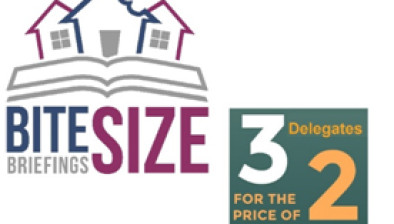All female panel assembles to offer online alternative to court for property and housing disputes
Six highly-respected dispute resolution specialists have teamed up to offer a first of its kind fully online service for the mediation and arbitration of civil and commercial disputes, aimed at providing a quicker, efficient and more cost-effective alternative to court.

Rachael Bicknell
It can be used by housing associations, local authorities, third sector organisations, property owners, property factors, letting agents, landlord and tenants in all kinds of housing disputes, without the need to instruct a solicitor.
With the COVID-19 pandemic driving demand for technology-led alternatives to traditional face-to-face dispute resolution and court processes, the panel of mediators and arbitrators has joined forces with Edinburgh based dispute resolution business, Squaring Circles, to offer the new online alternative dispute resolution (ODR) service, delivered through global market-leading purpose-built ODR technology.
The impressive team has been assembled by Rachael Bicknell, founder and director of Squaring Circles. She is being joined on the panel by Angela Grahame Q.C - former vice-dean of the Faculty of Advocates, Susanne Tanner Q.C - director of Ampersand Advocates, Gillian Carmichael Lemaire – member of the Paris Bar, Sheila Webster - partner at Davidson Chalmers Stewart and Pamela Lyall – Scotland’s Mediator of the Year 2014.
The Business ODR (BODR) fixed fee scheme and the Commercial ODR (CODR) scheme, recently launched on Squaring Circles’ dedicated ODR website. Both schemes offer parties the opportunity to resolve their disputes in a matter of months, saving on wasted management time, lost productivity and legal costs.
The new service also coincides with the UK Government issued guidance urging groups to act reasonably in enforcing contracts, saying it “strongly encouraged” parties to resolve emerging contractual issues through negotiation and mediation before they “escalate into formal intractable disputes”.

Susanne Tanner Q.C
Rachael said: “Housing disputes often involve parties who have an ongoing relationship. Online mediation or med-arb allows organisations to engage with their tenants or property owners in a constructive way, avoiding the adversarial nature of the courts. Mediation also gives parties the opportunity to restore, preserve or even enhance their relationship.
“As we enter what is predicted to be the biggest recession in hundreds of years, housing associations, public and third sector organisations will be asking themselves whether litigation is a good use of their resources.
“Litigation and traditional alternative dispute resolution, even for sizeable claims, is often disproportionately expensive, slow and uncertain. For many housing disputes, the involvement of lawyers, often leading to the adoption of court processes, means that costs can quickly approach or exceed the value of the claim.”
Squaring Circles is the first business in Scotland to bring together a panel of dispute resolvers comprising mediators and arbitrators, specifically designed ODR processes, including hybrid med-arb processes, and the latest ODR technology.

Sheila Webster
Susanne Tanner Q.C said: “As restrictions begin to lift and organisations take their first steps out of lockdown, we can expect to see an increase in claims across all sectors. Online alternative dispute resolution is an effective solution for housing associations, public or third sector organisations, property owners, factors, letting agents, landlord and tenants to achieve better net outcomes in all sorts of disputes including factoring disputes, letting agent disputes, rent disputes, disputes between co-owners, building defects, health and safety matters, landlord and tenant disputes and contractual issues.”
Sheila Webster added: “For many property and housing disputes, a key aspect in resolution is achieving early clarity as to the outcome. With the additional delays caused by a huge backlog in the courts and tribunals, ODR offers an efficient, convenient and cost-effective method of early resolution for a sector often frustrated by the length of time court actions take to resolve.”







